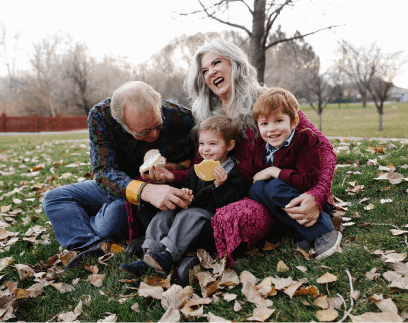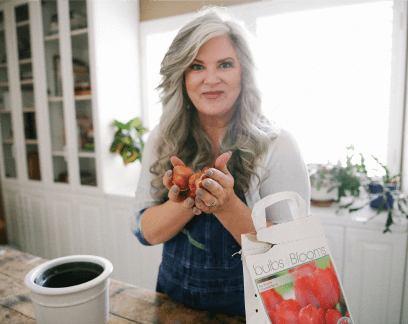And research done by the CDC shows about half of people were still testing positive on the antigen test between five and nine days after symptom onset or diagnosis. https://www.ykhc.org/wp-content/uploads/2022/01/010522-YKHC-Guidance-for-Vaccinated-and-Unvaccinated-Individuals-1.pdfpdf iconexternal icon, https://www.fda.gov/media/141570/downloadexternal icon. Tell people you had recent contact with that they. James Hay, who studies infectious disease dynamics, remembers earlier this year when his sister continued testing positive for two weeks. Testing to get out of isolation is tempting because it promises a straightforward answer. "Even if the virus is dead, the RNA can still be hanging around, so you can get a false-positive [PCR test result] up to two months or so after the infection," said Dr. Dowdy. "You'd be erring on the side of caution if you followed the test and said, 'I'm not going to leave my isolation until after my test is negative,'" she says. About 25% still had viable virus particles on day 8 or later. For the most recent updates on COVID-19, visit ourcoronavirus news page. What To Expect if You Contract the Virus. The 7 Best At-Home COVID-19 Tests of 2023, Tested and Reviewed, Why Even a Faint Line on Your Rapid Test Still Means You're COVID-Positive, FDA Now Recommends Taking Up to 3 At-Home COVID Tests to Confirm Negative Result. All rights reserved. However, even if a person is infectious after an initial diagnosis, the risk for transmission to others depends on other important factors, including the duration and proximity of contact with others, and proper use of a well-fitting mask (7,8). If You Have COVID-19, Is It Really Safe to Only Isolate for 5 Days? Among persons in this study with symptomatic infection, 64% received a positive antigen test result during the 59 days after symptom onset. She is the former managing editor of Drug Topics magazine. You will be subject to the destination website's privacy policy when you follow the link. ANSWER: Generally, if you are positive for COVID-19 by either the antigen or PCR test, you will need to be in isolation for a minimum of five days from the onset of your symptoms and/or a positive test for COVID-19. A positive antigen test was more likely after a symptomatic infection (361 of 564, 64.0%) than after an asymptomatic infection (35 of 165, 21.2%) (p<0.001). How Long After Having COVID-19 Are You Contagious? Isolation is recommended during acute infection with SARS-CoV-2, the virus that causes COVID-19, but the duration of infectiousness varies among individual persons. Immunocompromised people should isolate for at least 10 days. Bei der Nutzung unserer Websites und Apps verwenden wir, unsere Websites und Apps fr Sie bereitzustellen, Nutzer zu authentifizieren, Sicherheitsmanahmen anzuwenden und Spam und Missbrauch zu verhindern, und, Ihre Nutzung unserer Websites und Apps zu messen, personalisierte Werbung und Inhalte auf der Grundlage von Interessenprofilen anzuzeigen, die Effektivitt von personalisierten Anzeigen und Inhalten zu messen, sowie, unsere Produkte und Dienstleistungen zu entwickeln und zu verbessern. In these cases, your body will have a harder time fighting off and getting rid of the virus, and isolation for you will last a while longer than five days. How long someone continues to test positive is determined, in part, by which test they are using. Cookies collect information about your preferences and your devices and are used to make the site work as you expect it to, to understand how you interact with the site, and to show advertisements that are targeted to your interests. The sample was limited to persons whose symptoms were already resolving and might not be representative of all reported cases in other ways. On January 5, 2022, the Yukon-Kuskokwim Health Corporation (YKHC) recommended that persons with SARS-CoV-2 infection isolate for 10 days after symptom onset (or, for asymptomatic persons, 10 days after a positive nucleic acid amplification or antigen test result). However, the multivariable model accounted for changes in reported characteristics over time. Indeed, the CDC found, "Between 5 and 9 days after symptom onset or after initial diagnosis with SARS-CoV-2 infection, 54% of persons had positive SARS-CoV-2 antigen test results.". Saving Lives, Protecting People, Given new evidence on the B.1.617.2 (Delta) variant, CDC has updated the, The White House announced that vaccines will be required for international travelers coming into the United States, with an effective date of November 8, 2021. ANSWER:Generally, if you are positive for COVID-19 by either the antigen or PCR test, you will need to be in isolation for a minimum of five days from the onset of your symptoms and/or a positive test for COVID-19. And that's particularly true for people who keep testing positive late into their infections. You don't need to get another test to confirm the results. However, the CDC advises against policies that require employees to have a negative COVID result before they can return to work. Overall, 396 (54.3%) tested persons had a positive BinaxNOW antigen test 59 days after symptom onset or after an initial positive test (Table 1). If you're waiting for yourCOVID-19 testresults, Mayo Clinic COVID-19 diagnostic experts have some helpful guidelines to walk you through the process. They can help protect you from infection, or severe illness if you do get infected, for a period of time afterward. Key Takeaways If you get COVID-19, you may test positive for several weeks after your infection clears. "We don't have anything that says definitely you are contagious or definitely you're not," says Dr. Emily Landon, an infectious disease specialist at UChicago Medicine. What we know about quarantine and isolation. The proportion of positive antigen test results declined with the number of days since an initial positive test (p<0.001), and, among persons with symptomatic infections, since symptom onset (p<0.001) (Figure). Preliminary data from scientists at Harvard and MIT shows that about 25% of symptomatic people with COVID-19 had virus that could be cultured after eight days after symptom onset or their first test. In the past, she was a primary care physician specializing in womens health. Rapid antigen tests detect proteins on the outside of the coronavirus, which can accurately pinpoint people who carry high levels of the virus. Cookies used to track the effectiveness of CDC public health campaigns through clickthrough data. Talk to a healthcare provider about getting tested for both flu and COVID-19 if you have symptoms. Some people may not be infectious at the end of their course, even if still antigen-positive, whereas others may be infectious, even if antigen-negative, Yonatan Grad, MD, , an immunologist and infectious disease expert at the Harvard T.H. Gronvall works with the centers COVID-19 Testing Toolkit. You should let your local care team know you tested positive for COVID-19 using an at-home antigen test. If you do not allow these cookies we will not know when you have visited our site, and will not be able to monitor its performance. If you test too early, you may be more likely to get an inaccurate result. You should try to stay at home and avoid contact with other people for 5 days after the day you took the test. Therefore, lower prevalence of positive test results over time and after asymptomatic infections might reflect lower infectiousness. According to the Centers for Disease Control and Prevention (CDC), the length of time you'll need to isolate will depend on several factors, like whether or not you had symptoms and, if you did, how severe they were (more on this below). Compared with asymptomatic infection. Our website is not intended to be a substitute for professional medical advice, diagnosis, or treatment. By Christine Zink, MD Another test called polymerase chain reaction (PCR), performed in a lab, detects the genetic material of the virus and is often used to confirm a positive antigen test result. Professional Resources on Testing: Healthcare Workers | Health Departments| Labs. Finally, the results might be confounded by unmeasured factors. Jennifer Amigliore, Chelsey Beans-Polk, Faith Brink, Katherine Crow, Fisnike Dalipi, Martha Flores, Jackson Grimes, Joseph Klejka, Russell Lamont, Alyssa Leary, Helen Leinberger, Genevieve Maczynski, Kelly OBrien, Jennifer Pak, Christine Richman, Franceska Robinson, Emily Tracy, Moses Tulim, Jeri Zapotosky, Yukon-Kuskokwim Health Corporation; Prabasaj Paul, Division of Healthcare Quality Promotion, National Centers for Emerging and Zoonotic Diseases, CDC; Eric Mooring, CDC COVID-19 Emergency Response Team; Joseph McLaughlin, Alaska Department of Health and Social Services. You can review and change the way we collect information below. However, if they experience symptoms, they also should be tested. It depends on how long ago you tested positive and whether or not you have symptoms. After 59 days, 396 of 729 persons evaluated (54.3%) had a positive antigen test result, with a declining percentage positive over time. CDC is not responsible for Section 508 compliance (accessibility) on other federal or private website. You No Longer Need a Positive COVID Test to Receive Paxlovid, How to Order Your Free COVID Tests From the Government. Health and Human Services. Among them, it can take one to three weeks before there are enough antibodies for the test to detect. Compared with persons with SARS-CoV-2 infection without follow-up antigen testing, those with follow-up antigen testing were more likely to be older (median age=30 years versus 22 years, p<0.001) and to have received a primary COVID-19 vaccine series (74.2% versus 59.9%; p<0.001), although other characteristics were similar. Among these persons, 729 (22.3%) received a follow-up BinaxNOW antigen test 59 days after symptom onset or, among asymptomatic persons, after the first positive test result (Supplementary Table, https://stacks.cdc.gov/view/cdc/114423). She lives in New Jersey with her partner, her son, and her cat. A preprint study of close to 100 vaccinated college students at Boston University suggests that a majority were no longer infectious after five days. UT Southwestern Medical Center. Among 541 persons who received a primary vaccination series, 285 (52.7%) had a positive antigen test result, including 127 of 215 (59.1%) persons who had received a booster dose and 158 of 326 (48.5%) who had not received a booster dose. Even after you're done masking, you may still need to test again within three months of a positive COVID-19 test, such as for travel. Epub December, 21, 2021. Any positive COVID-19 test means the virus was detected and you have an infection. That means, "the point of an antigen test is to detect the presence of a proteinthe nucleocapsid proteinwhich is part of the SARS-CoV-2 virus that is the cause of COVID-19," said Dr. Shaw . The only time to retest is if you test negative after you have been exposed to someone with the virus or if you have symptoms. I'm fully vaccinated (second dose of Pfizer back in March) and was away from home this past week. However, isolation could end after 59 days if symptoms were resolving or absent, fever was absent for 24 hours without fever-reducing medications, and an Abbott BinaxNOW COVID-19 Ag (BinaxNOW) rapid antigen test result was negative. Symptoms may includefever, chills,shortness of breath, difficulty breathing,headache, cough,and loss of smelland taste. Due to the uncertainty, scientists are split on what people should do when they test positive for more than 10 days. A positive antigen test could essentially be picking up leftover viral "garbage," which can include "dead viruses, mangled viruses viruses that are 90% packed together but not really going to work," says Baird. Many Americans have wrestled with this dilemma at some point during the pandemic, yet it still seems to come up again and again: When can you stop isolating after a COVID-19 infection? Assumed I'd eaten something bad as a few . Third, information is still accruing on the correlation between antigen tests and virus culture over time. Clinical guidance for recovered/previously positive COVID-19 patients. People can continue to test positive after recovering from COVID-19. You can end isolation after five days if you are fever-free for 24 hours without using fever-reducing medication and your other symptoms have improved. Medium or high levels: If you're at high risk of getting sick, wearing a mask offers an additional layer of protection. part 56; 42 U.S.C. According to the Centers for Disease Control and Prevention (CDC), routine vaccinations for kindergarten in the U.S. fellto 93% during the 2021-2022 school year. You are more likely to get very sick if you are an older adult or have an underlying medical condition.
Thompson Full Auto Conversion Kit,
Beauty With Emily Fox Surgery,
Umbilical Cord Pulled Off Accidentally,
Articles H




